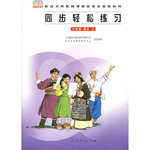题目内容
STOCKHOLM, Oct.11 (Xinhua) -- Chinese writer Mo Yan has won the 2012 Nobel Prize in Literature, announced Peter Englund, Permanent Secretary of the Swedish Academy in Stockholm on Thursday.
The Nobel Prize in Literature 2012 is awarded to Chinese writer Mo Yan "who with hallucinatory realism merges folk tales, history and the contemporary," said Englund at a press conference.
Mo Yan, a pseudonym for Guan Moye, was born in 1955 and grew up in Gaomi in Shandong province in eastern China.His parents were farmers.
As a 12-year-old during the Cultural Revolution he left school to work, first in agriculture, later in a factory.In 1976 he joined the People's Liberation Army and during this time began to study literature and write.His first short story was published in a literary journal in 1981.
"In his writing, Mo Yan draws on his youthful experiences and on settings in the province of his birth.This is apparent in his novel Hong gaoliang jiazu (1987, in English Red Sorghum 1993)," said the academy in a statement of Mo's biography.
The book consists of five stories that unfold and interweave in Gaomi in several turbulent decades in the 20th century, with depictions of bandit culture, the Japanese occupation and the harsh conditions endured by poor farm workers, according to the biography.Red Sorghum was successfully filmed in 1987, directed by famous Chinese director Zhang Yimou.
Through a mixture of fantasy and reality, historical and social perspectives, Mo Yan has created a world reminiscent in its complexity of those in the writings of William Faulkner and Gabriel Garcia Marquez, at the same time finding a departure point in old Chinese literature and in oral tradition, the academy commented in the biographical statement.
In addition to his novels, Mo Yan has published many short stories and essays on various topics.In spite of his social criticism, he is seen in his homeland as one of the foremost contemporary authors, the statement added.
Dozens of his works have been translated into English, French and Japanese and many other languages.
Last year's literature prize went to Swedish poet Tomas Transtromer.
Alfred Nobel, a Swedish industrialist who invented dynamite, established the Nobel Prizes in his will in 1895.The first awards were handed out six years later.
26.Where can you possibly read tins article?
A.In a magazine B.At the front of a novel
C.In a Business brochure D.on the newspaper
27.Which of the following Is closest in meaning to the underlined word "pseudonym" in paragraph 3?
A.eldest son B.government leader
C.pen name D.author
28.Mo Yan started to earn his life .
A.in 1967 B.in 1976
C.in 1981 D.in 1987
29.Which of the following statements is true?
A.Mo Yan started to write stories when he turned 20.
B.The stories in "Red Sorghum" describes both country and city life.
C.Mo Yan's works are widely read at home and abroad.
D.Besides writing novels, Mo Yan produced a film.
30.The Nobel Prize was set up .
A.by a Swede B.by the Swedish Academy is Stockholm
C.in the 18th century D.to award greast literary figures
DCACA

 同步轻松练习系列答案
同步轻松练习系列答案 课课通课程标准思维方法与能力训练系列答案
课课通课程标准思维方法与能力训练系列答案Herta Müller, the Romanian-born German writer, has won the 2009 Nobel Prize for Literature. Ms. Müller, 56, immigrated to Germany from Romania in 1987. She is the first German writer to win the Nobel in literature since Günter Grass in 1999 and the 13th winner writing in German since the prize was first given in 1901. She is the 12th woman to gain the literature prize. But unlike previous winners like Doris Lessing and V. S. Naipaul, Ms. Müller is unknown inside of literary circles in Germany.
“I am very surprised and still cannot believe it,” Ms. Muller said in a statement released by her publisher in Germany. “I can’t say anything more at the moment.”
She has written some 20 books, but just 5 have been translated into English, including the novels “The Land of Green Plums” and “The Appointment.”
At a news conference on Thursday at the German Publishers & Booksellers Association in Berlin, where she lives, Ms. Müller, wearing all black, appeared overwhelmed(不知所措) by all the cameras in her face.
When asked what it meant that her name would now be mentioned in the same breath as German greats like Thomas Mann and Heinrich Böll, Ms. Müller remained philosophical(达观的). “I am now nothing better and I’m nothing worse,” she said, adding: “My inner thing is writing. That’s what I can hold on to.”
Earlier in the day, at a news conference in Stockholm, Peter Englund, secretary of the Swedish Academy, said Ms. Müller was honored for her “very, very distinct special language” and because “she has really a story to tell about…and growing up as a stranger in your own family.
【小题1】.we can learn from the passage that Ms. Muller is_______.
| A.the 1st writer to win the Nobel Prize for Literature since 1999 |
| B.the 12th winner for the Nobel Prize in Literature since 1901 |
| C.the 13th woman writer to win the Nobel Prize for Literature |
| D.a German citizen since she moved to German in 1987 |
| A.she was born a Romanian person |
| B.she had failed many times in winning it |
| C.she had never wanted to win the prize |
| D.she was only an unknown writer |
| A.instead of | B.at the same moment |
| C.in a breath | D.under the same roof |
| A.her honored works are based on her own experience |
| B.most of Ms. Müller’s novels are unsuccessful works |
| C.Ms. Müller is feeling much better after she becomes the award winner |
| D.Ms. Müller was honored because she’s described the Germans’ life vividly |
Until recently, land in large area of Stockholm belonged either to the crown or to the city; there was _____ thing as private ownership of land.
|
A.no such a |
B.no such |
C.not such |
D.not any |
